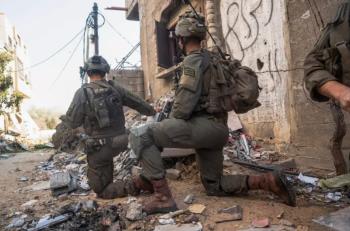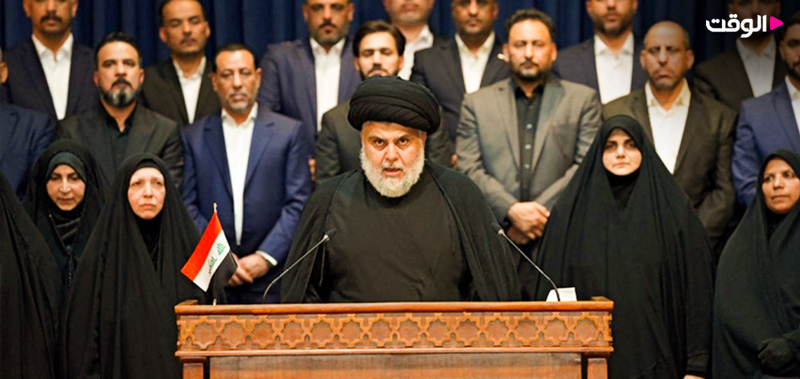Alwaght- A key principle in pragmatic politics suggests that "the validity of any political doctrine depends, to a large extent, on the success of that doctrine when it is actually implemented. In this view, to achieve the desired result, the decision makers should look realistically at the political situation; that is, reality as it is and not as it should be.
This vision is considerably showing itself in the performance of the major actors these days in the politics of Iraq, a country where six months after the parliamentary elections, the political groups are yet to reach an agreement to form a new government, giving rise to a limbo that can push the country to a new political crisis if allowed to continue.
A look at the post-election developments over the past few months and after the alliances' approximate weight became known, it is clear to the Iraqi observers that neither of these alliances, namely the Sadrist-led Salvation Coalition and the Shiite Coordination Framework (SCF), are independently capable of forming a new government. In the middle of this uncertainty, the Iraqi society expects a creative move for an exit.
This expectation was created for the last time following the end of Muqtada al-Sadr's 40-day deadline to other political groups to form a cabinet. Albeit, the new al-Sadr initiative for post-deadline period hardly injects new hope into public about the change of the current political situation.
In al-Sadr's new initiative, he invited independent members of parliament to join the Salvation Coalition, which he believes is the majority coalition.
"We urge them to form an independent group with at least 40 members away from the Coordination Framework, which has lost its opportunity," Sadr tweeted on Wednesday, calling the independents the third largest faction in parliament.
He added that independent MPs should join a larger coalition to form an independent government. This coalition will vote in favor of a government formed by Sadrist Movement, Kurdistan Democratic Party, and the Sunni Sovereignty bloc. The Sadrist Movement, according to the statement, will not interfere in their ministers choosing.
"We also emphasize that they will have a maximum of 15 days to do so in order to expedite the end of the nation's suffering," the statement read.
The independent MPs saw a sharp rise in their significance after the Federal Court ruling suggesting necessity of presence of two-third of the lawmakers for a formal parliament session. This motivated al-Sadr to resort to them as the only choice possibly contributing to the government formation. Now it remains to see if the independents would join a Sadr-led coalition.
Al-Sadr's initiative will certainly not easily lead to the expected result, and the challenges ahead are far from small. After all, he has already made every effort to win the votes of the independents, and some 0f the independents are already part of the tripartite Salvation Coalition. So, it is not that the independents have not joined al-Sadr yet.
The fact is that many of the MPs who entered the parliament as independents were introduced with the support of traditional political forces, so a number of them from the very beginning aligned themselves with these political forces. Therefore, an expectation of dramatic change in the orientation of the independent lawmakers is unrealistic.
In the other side, the SCF more than once has proven that it strongly holds the third guarantor to block formation of the parliament sessions. On March 30, once again, with the absence of more than 140 members of parliament in the president election session, the session fell from officiality, proving the power of the SCF to all.
In the past few weeks, the continuation of the political deadlock not only challenged al-Sadr's power to attract the independents but also caused fallings in his own coalition. On April 27, Ali al-Zubaidi, of Fatah bloc, said that over 10 members of al-Sadr coalition defected and joined the SCF.
But while chances of al-Sadr's new initiative making a change are slim, the initiatives by the rival SCF have proven more proportionate to the Iraqi political realities and also more implementable. In addition to drawing public support, this would present more attractive performance to MPs in favor of nationalist approach.



























